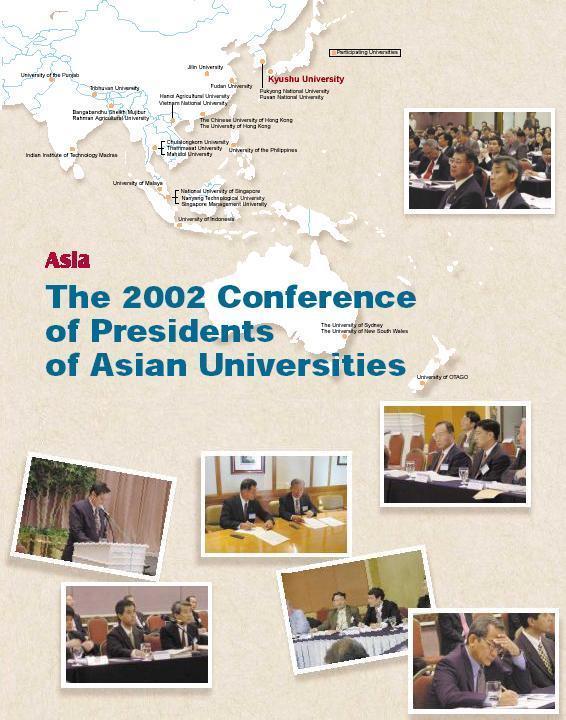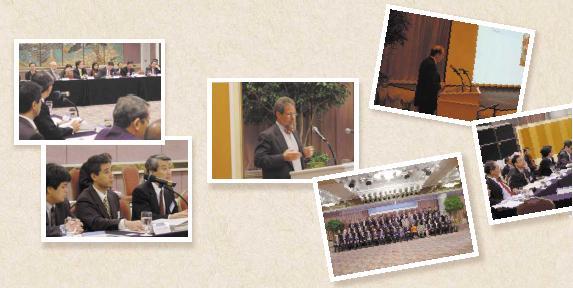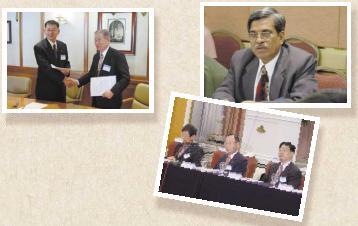The 2002 Conference
of Presidents
of Asian Universities

Participating Universities
Kyushu University
Jilin University
Pukyong National University
Pusan National University
The Chinese University of Hong Kong
The University of Hong Kong
University of the Philippines
Chulalongkorn University
Thammasat University
Mahidol University
Hanoi Agricultural University
University of Malaya
National University of Singapore
University of Indonesia
Indian Institute of Technology Madras
The University of Sydney
The University of New South Wales
University of OTAGO
Bangabandhu Sheikh Mujibur
Rahman Agricultural University
Tribhuvan University
University of the Punjab
Nanyang Technological University
Singapore Management University
Vietnam National University
Fudan University
The Role of Universities in the Knowledge-Based Society: International Cooperation in Continuing Education
Research Associate
OPCIA (Office for Planning and Coordination of International Affairs)
Shoji Shinkai

"The 2002 Conference of Presidents of Asian Universities" was held in Pusan, Korea from October 23 through 25, inviting 24 universities from 15 Pacific-rim nations. This conference was initiated by Kyushu University and was first held in Fukuoka in 2000 and then again in 2001. This year, the conference was held outside Japan for the first time and was hosted by Pusan National University.
The main theme of the conference this year was "The Role of Universities in the Knowledge-Based Society: International Cooperation in Continuing Education." The situations and problems confronting each of the participant universities were presented and discussed. Also, three guest speakers from the US, Canada and Germany talked about the situations and problems facing their respective universities. Each university faces different situations and circumstances, and each university interprets the meaning of "continuing education" differently. However, it became clear that "continuing education" was a relatively important issue for all of the universities participating in the conference.
Information Technology (IT) was another theme of the conference, as it is felt that "IT" will play an important role in "continuing education" in the 21st century. Dr. Okamura of the Computing and Communications Center of Kyushu University presented a report about an on-going project, which connects Korea and Japan directly by optical fibers. The completion of the project will have a great impact on Kyushu University's E-learning (distance learning) capabilities. When the project is completed many different types of collaboration, such as remote classes, joint curriculum and video conferencing will become much easier. All of the universities participating in the conference are very interested in developing E-learning programs in partnership with our university.
At the conference, Kyushu University also had a chance to introduce the Network Point (NP) Scheme to the new partners. Kyushu University was also able to conclude written agreements on NP with several universities during the conference. Under the NP framework, various types of collaborations are expected to take place, such as joint research, academic exchanges, student exchanges, and other activities.
One example of a NP collaboration proposed by Kyushu University is the Asian Student Exchange Program (ASEP), which promotes student exchange that enables participants to transfer credits. Credit transfer is a major issue in promoting student mobility in the Asian region. In order to implement a credit transfer system effectively, close cooperation and interactive relationships between institutions are necessary. The ASEP, based on the close cooperation of NPs, will provide greater possibilities for students to transfer credits between universities.
Next year, the conference will be hosted by Chulalongkorn University, Thailand.
